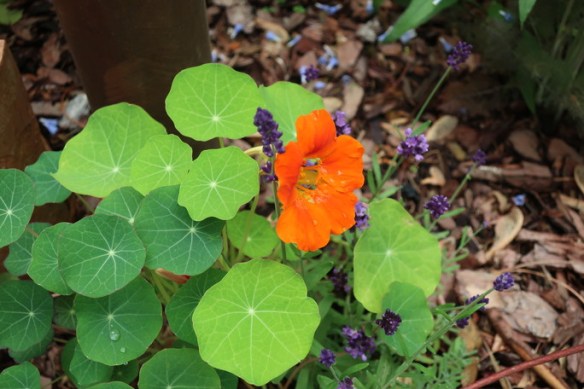I firmly believe that over the years, both garden and gardener need to evolve. We must keep up with the time as new horticultural introductions come to light, the latest scientific understanding shows us how to adjust or alter the way we garden, climate change forces us to adapt to different conditions, our age insists we seek to downsize, get some extra pair of hands or simplify our gardens. Our aesthetics and preferred styles evolve. We lose plants to weather related crises, pests or owns own negligence. The point is, it is up to us to determine how well we ourselves grow and consequently, how our gardens do so as well. With the right attitude, it is an exciting process. After all, maintaining a status quo is not only humdrum and tedious but can be detrimental. Without actively making positive change, taking a chance on trying something new, welcoming opportunities and enjoying the progress that is made, one is in peril of letting the world pass us and our gardens by.
For me, February is the ideal time to think about ways I can tweak my garden to make it more interesting and/or exciting. Sometimes the tweak can be substantial as was when I decided to create the vertical garden or something much smaller as in the case of having a ‘display’ by the curb to give passers by something to lift their mood as they drive or walk by. In any event, I derive enormous pleasure from it all and inevitably learn so much as well.
This year, I’m dreaming of creating a proper collection of citrus plants. Mostly varieties of lemons with some types of oranges in the mix. Nothing too ambitious as there is much to understand. For some years now, I’ve been successfully growing calamondin oranges, Meyer lemons and regular lemons. They all live in pots that go into the greenhouse each winter. In addition, after seeing the hardy orange (suitable for my neck of the northeast) at the NYBG, I acquired 3 very young trees of the same from Hortus Gardens. One day, when they’ve reached a reasonable size, I will have to find them a suitable site in my tiny garden. They’re slow growers so that time is a few years away. But already in my mind’s eye I can see this trio looking mighty fine in their fullness.
My source of inspiration and motivation is a book I’m currently reading. ‘The Land Where Lemons Grow’ is one that must be read slowly in order to fully appreciate the history of citrus cultivation in Italy. I’m picking up several nuggets of wisdom and simultaneously escaping from the harsh winter here to the romance of Italy. I’m savoring this book as one does a fine glass of chilled limoncello.
Soon I will research and source types of citrus I’d like to grow. Consider my budget before placing orders, acquire appropriately lovely pots and then, launch into squeezing a ‘lemon house’ in my already crowded piece of paradise. That last one could be a pipe dream but why should that stop me from dreaming anyway?
My juices are definitely flowing.
Note: All fruit (except the 3 showing the NYBG hardy orange and label towards the end) in the following images were homegrown!

























(c) 2025 Shobha Vanchiswar
[do_widget “Blog Subscriptions (Jetpack)”]





















